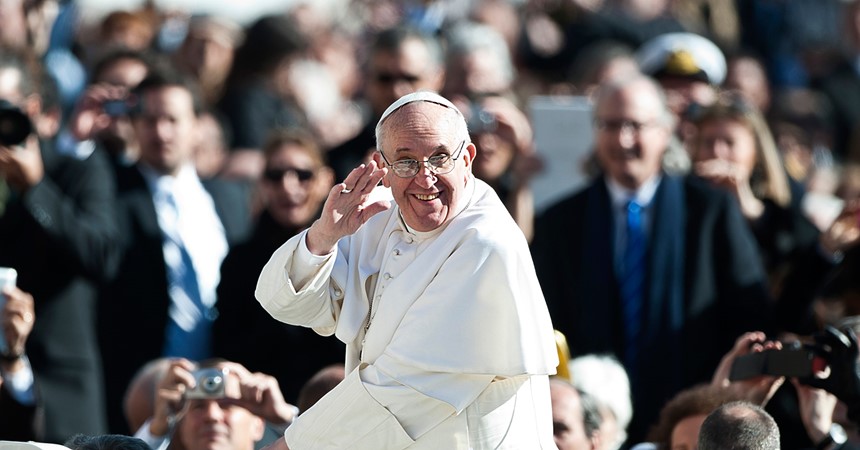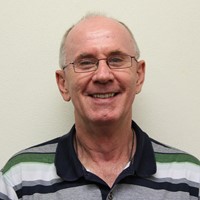The Synod of Bishops was established by Pope Paul VI at the end of the Second Vatican Council (1962-65) as a permanent universal advisory body to assist the Pope. It meets regularly as an Ordinary General Assembly (fourteen meetings so far), or with reduced participants for special purposes as an Extraordinary General Assembly. Last year’s was only the third.
The special purpose of last year’s Extraordinary Assembly was to make this year’s more special. As we now expect from Pope Francis, the process he introduced is special indeed.
Restricted, Vatican-devised input had been the preparation for past Synods. This year’s Synod will benefit extraordinarily from what happened in October 2014, from what preceded it, and what is now percolating as a result.
Catholics throughout the world at all levels have been discussing and seeking practical pastoral approaches to the problems families face, as identified last year with world-wide input from the laity. Their considerations will feed in to next October’s proceedings.
Much was made (and still is by some) of the possibility that Church dogma might change to encompass some current thinking and practice. Pope Francis was clear that changes to dogma were not on the agenda. This is a pastoral process seeking practical solutions. He revealed, for example, that no one at the Extraordinary Synod “called into question the fundamental truths about the sacrament of marriage: its indissolubility, unity, fidelity and openness to life.”
Compassionate, however, should be the Church’s practical, pastoral responses to those not fully conformed to fundamental truths. Christ’s adherence to truth was uncompromising. His response to persons (perhaps excluding proud hypocrites and exploiters) was always compassionate, understanding, and embracing.
Pope Francis admitted – with delight it seems – there was “strong debate” among the bishops. He likened it to the Apostles “shouting at each other” in chapter fifteen of the Acts of the Apostles as they grappled with vital pastoral issues facing the infant Church. “Always…there will be different points of view and debates. That isn't something bad as long as it is done with humility and with an attitude of service.
There was “no pre-censorship,” said the Pope. “I asked the synod fathers to speak with frankness and courage and to listen with humility – to say everything that was in their hearts with courage.” It seems they did. “It was edifying,” Francis said.
The Synod participants undertook a “journey”, according to Francis, during which opposing temptations were confronted. The so-called ‘traditionalists’ were tempted to “hostile inflexibility”, while so-called ‘progressives and liberals’ were tempted to “a deceptive mercy… that treats the symptoms and not the causes and the roots”. According to him, the temptations were defeated.
Pope Francis thanked the media for their coverage of the Synod but warned, “frequently the view of the media was a bit in the style of sports or political coverage. There was much talk of two teams, for and against, conservatives and progressives, etc.” We are all one team according to our captain.
The mid-term Synod report was widely portrayed by the media as a “progressives” coup. It mentioned positive values in the relationships of people living contrary to church teaching. The final report was sometimes presented as a “conservatives” counter-coup. Not so. “It is the faithful and clear summary of everything that has been said and discussed in this hall and in the small groups,” declared Francis in his closing address.
This summary is now available universally as a guidelines document preparing for the Ordinary Synod. The time available is “…to mature, with true spiritual discernment, the proposed ideas and to find concrete solutions to so many difficulties and innumerable challenges that families must confront; to give answers to the many discouragements that surround and suffocate families.”
Forums and questionnaires have been provided, locally and world wide, to ensure “the work of prayer, reflection and fraternal discussion continues with the aim of preparing for the next assembly”.
At that Ordinary General Assembly of the Synod next October, wisdom from the universal Catholic Church will be presented for consideration and further refinement. Through an ongoing process of robust debate, bold expression, candidness and transparency, the assembled bishops will rely on the Holy Spirit to guide them in discerning outcomes. A final document will then be presented to the Pope.
Pope Francis has made it clear that he will have the final word in the process, as he is the “supreme servant” in union with the bishops who are the servants of the Church in their role of guaranteeing unity, faithfully following the gospel and nourishing the flock.
The Pope’s ultimate role will be to endorse for implementation (with or without his own contributions) the Ordinary Synod’s “concrete solutions”.
The major triumph so far is in the process which involves:
- Far-reaching prior consultation (including universal surveys)
- A climate that encourages different opinions
- Robust debate
- Respectful listening
- Powerful lay participation
- Transparency and openness
- Accurate reporting
- Spiritual discernment leading to consensus.
The journey – the consultative, inclusive, open process – is a real achievement for the Church.
The end of the journey – the “concrete solutions” and their successful implementation – is still to be achieved.























































































